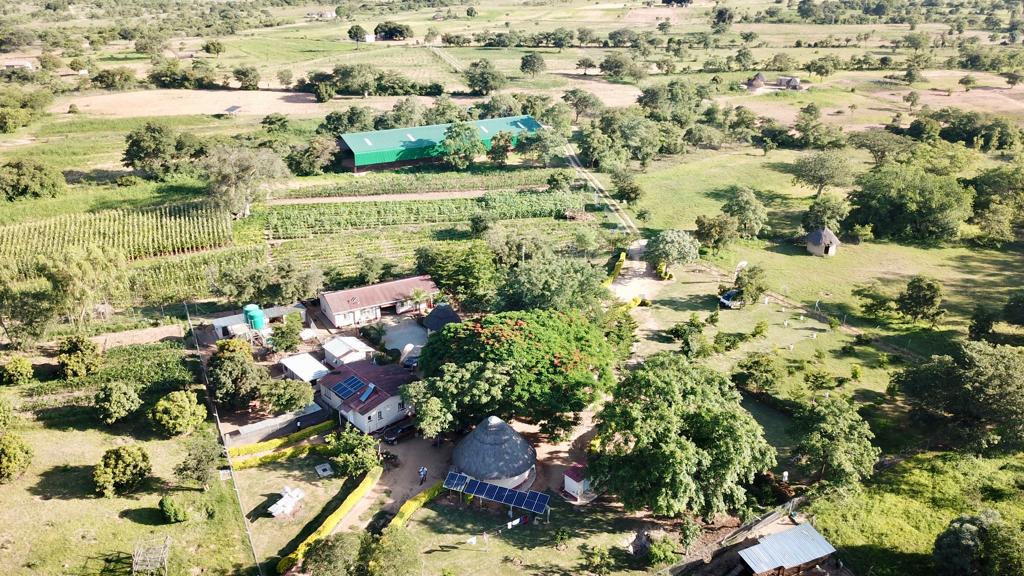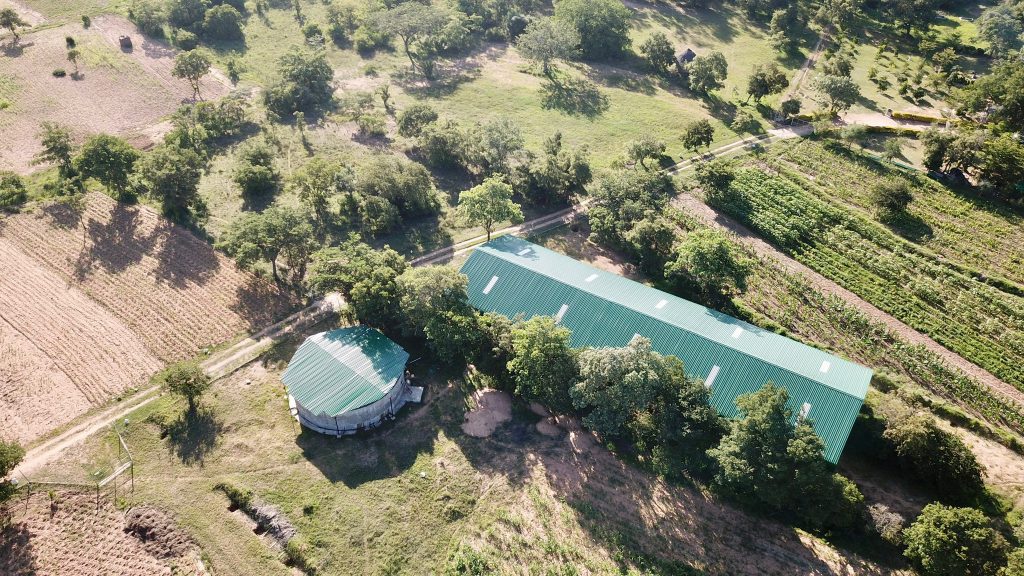Overview
The Integral Kumusha is a home grown transformative socio-economic innovation that aims to eradicate poverty and ensures food security among the rural people in Zimbabwe, other African countries and the global South. This holistic development approach focuses primarily on self-sufficiency as the first step towards rural eco industrialisation and development. The Integral Kumusha emphasises on the use of available resources, gifting and talent in transforming a traditional homestead into a viable integral rural enterprise or entity. The Integral Kumusha approach has a constellation of relationships with different stakeholders that form part of its transformation and development ecosystem which provides for contributions from all parties. This is a departure from the traditional top down approach in that the grassroot people define the problems and come up with solutions that are relevant to their situation and cultural practices and actively participate in changing their situation in a downward, upward and sideways approach.
THE INTEGRAL DIMENSIONS OF THE INTEGRAL KUMUSHA
The diagram below shows the evolved Integral Kumusha model with its emphasis on the Integral Development approach. This approach allows for a holistic development with different practical activities that denote each part of the integral system.
The Integral Kumusha has five integral dimensions that makes the innovation a holistic model that embeds the integral design. In the integral approach, the Centre pulls everything together then starts from the South in an anticlockwise direction until it gets to the West and feeds back to the Centre as the cycle continues.
CENTRE (Unity)
The central force is the African Ubuntu and indigenous cultural values focusing on people living in harmony with nature while emphasisig the spirit of oneness and interdependence.
SOUTH (Nature and Community - Relational)
The Integral Kumusha is grounded in agricultural activities which include crop farming, horticulture, beekeeping/ apiculture, livestock farming, fruit trees and herbal farming. These operations are conducted within the rural community and involves the people in order to enhance their lives, livelihoods and wellbeing. This is being achieved by regenerating the soil by using organic manure which is produced on site using the “At Source Utility or Device” called the Jati Composter and Earthworm Breeder which was invented by Dr Ephrem Whingwiri. The local grounding in community engagement and involvement promotes community learning.
EAST (Culture and Spirituality - Inspiration)
The Integral Kumusha preserves the African culture in terms of food, language, music, dance and values of respect of the elders, etc. the transformation is achieved through the renewal of the mind and practices to enhance and strengthen development, in this case, the promotion of the Mai Chimuti Brand with Christina as CEO. The local global emergence facilitates the transformative journey.
NORTH (Science and Technology - Knowledge)
The Integral Kumusha incorporates science and technology in its operations in order to improve production and productivity. The use of drip irrigation in farming, harnessing solar for renewal energy to use electrical appliances and equipment, harvesting of water to ensure sustainable development are key initiatives being utilised. In order to ensure continued co-creation of knowledge, the Nhakanomics Academy and Transformation Centre is being developed where indigenous and exogenous knowledge with blend. The Integral Kumusha has partnerships with schools, local and international universities, research institutions and likeminded institutions such as the Home for Humanity to regenerate and transform communities, societies and the Earth.
WEST (Enterprise and Economics - Action)
The Vakamusha has been registered and is trading as Integral Kumusha Private Limited which is involved in processing, packaging and selling of the various products in order to generate income and creating local employment thereby nurturing a vibrant community economy. This home based enterprise is an alternative to the Western Corporate firm as it incorporate nature, culture, technology and enterprise. As a socio-economic entity or laboratory, all the new knowledge and principles are put to test for validation.
The Integral Kumusha is only one of the several initiatives within an integral development framework and process mentored by Lessem and Schieffer from the TRANS4M Centre, building on the authentic African and Zimbabwean values and culture going back to the traditional origins and re-visiting the age-old African Ubuntu values “I am because we are!”
THE EVOLUTION PATH
The Integral Kumusha evolution is grounded in nature and it starts with the traditional homestead or at household level and follows a transformative and generative path emerging as the Integral Kumusha which a new form of rural enterprise while exploring and co-creating new knowledge to create a new form of economic system that is anchored upon the indigenous cultural practices blend with exogenous knowledge which we call Nhakanomics (nhaka being a Shona word for legacy or inheritance) and ultimately having an economic entity which we call Vakamusha (building the home). So, the evolutionary model moves from a traditional homestead to the Integral Kumusha to Nhakanomics to Vakamusha.
THE MAI CHIMUTI BRAND
The Integral Kumusha operates under the Mai Chimuti brand for its enterprise activities. The brand was adopted by Christina, the Co-Founder of the Integral Kumusha when she relocated to settle in the rural community. mai Chimuti denotes and represents the marginalised rural women who work so hard for the survival and sustenance of their family with very limited resources. Chimuti is a Shona word for a piece of stick. For the rural woman, the stick plays a vital role in her life when performing different tasks and chores at home yet, the stick is considered not very important. Christina chose this despised yet very vital tool as a symbol of identification and also to drive the message that the seemingly despised rural women have the power to transform homes and communities from poverty to prosperity. As such, using Mai Chimuti as a brand is an affirmation of the tremendous contribution to enhance livelihoods and as a reminder that the feminine approach has the power to drive the transformation agenda towards societal transformation.
IMPACT AND CONTRIBUTION
The Integral Kumusha and Christina’s impact and contribution to the community and the national socio-economic development are profound as follows;
- Employment creation.
- At peak more than fifty people are employed to perform various tasks.
- Enhancing livelihoods and wellbeing.
- The various projects generate income which in turn help members of community to find employment and look after their families.
- Knowledge Co-creation and development.
- The Integral Kumusha hosts many people for tours of the projects and also during Field Days.
- Skills development.
- The Integral Kumusha facilitates the skills development through exposures to the new and innovative ways of conducting agricultural activities.
- Contribution to National Socio-Economic Development.
- The activities have positive impact on the national socio-economic development.
- Bridging the Socio-economic and technological divides.
- The Integral Kumusha helps to bridge the existing rural/urban, poor/rich, tradition/modernity, public/private, gender, age, and digital divides.
- Employment creation.
MAJOR PROJECTS FOR THE FUTURE
- Commissioning of the new Manufacturing and Industrial Hub
- Launching of the Rural Satellite University Campus
- Launching of the Nhakanomics Learning and Transformation Centre
- Development of the Conference Centre



